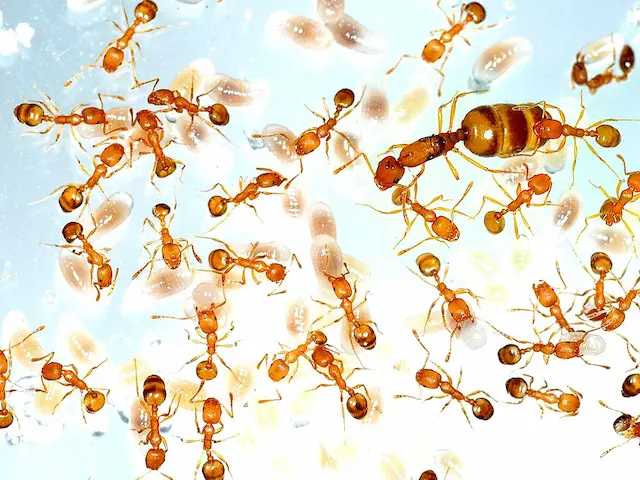Ants, which are small but determined, can quickly become pesky people in your home. Common problems that homes have are ant infestations. But, if you know what to do and take action, you can keep these sneaky invaders away. Through this help, we’ll talk about how to keep your home free of ants.
Learning About Household Ants
Understanding the types of ants that usually get into homes is important before you can protect it properly. These are some of the most common house ants:
Pavement Ants: These small, brownish-black ants like to live in cracks in sidewalks, floors, and pavement. People know them for the way they set up their lines hunting.
Bad-smelling house ants: When these ants are crushed, they give off a bad smell like rotten coconuts. They are usually found in bathrooms and kitchens.
Carpenter Ants: These are bigger ants that like wood that is wet or breaking down. If you don’t get rid of them, they can damage our houses.
The Argentine Ant is small, light to dark brown, and lives in large groups. They like fields, but they will also go into homes to find food.
Stopping ant infestations in homes
Ants will stay out of your house if you don’t let them in. Here are some methods that work:
Cover Up Entry Points: Ants can get into your home through very small gaps. Fill in cracks and holes in the walls, base, and around windows and doors of your home.
Thoroughly Clean: Make sure your home is clean, especially the kitchen and other places that get spills and crumbs. Clear the trash cans, wipe down the counters, and sweep the floors often.
Keep food in the right way; ants are drawn to food sources. No matter what, don’t leave pet food out overnight. Keep food in airtight cases.
Take out any water that is standing still. Ants need water to live. Quickly fix any pipe or leak problems, and don’t let water build up in trays under plants in pots.
Trim Plants: Keep bushes and trees trimmed so they don’t give ants a way to get into your home.
Inspections: Check your home every so often for signs of ants or possible entry spots. If you find an invasion early, you can stop it before it takes hold.
Taking Care of an Ant Problem
Even if you do everything you can, ant invasions can still happen. If you see ants in your house, do these things to get rid of them:
Figure out what kind of ant it is. This will help you figure out the best way to treat it.
Try ant baits. Ant baits can be very good at getting rid of whole ant colonies. Ants take these baits back to their nests with them, where they kill the whole colony with slow-acting toxins.
Do Some Research: If your pest problem is serious or won’t go away, you should talk to a professional pest control service. They know how to deal with tough bugs and have the right tools for the job.
Keeping your home free of ants
If you’ve already taken care of an ant problem, it’s important to keep the area free of ants. Keep cleaning regularly and taking precautions. Here are a few more tips:
Inspections Once a Year: You might want to have pests inspected once a year to find problems before they become outbreaks.
Educate yourself: To better understand how to keep them away, learn about the types of ants that live in your area and how they act.
Keep up with new pest control methods and tools to help you do a better job of keeping pests away.
To sum up, ant problems in homes are a common problem that can be fixed or avoided with the right information and actions. Understanding the types of ants that can get into your home, sealing off possible entry points, and knowing what to do when they do happen are all things you can do to keep these sneaky pests out and enjoy a living place that is ant-free.
Affordable, high quality, and professional ant exterminator porthope, done by insured and licensed exterminators. We use commercial-grade low-mammalian toxicity pesticides to get rid of ants completely in combination with potent baits.

